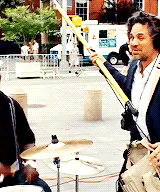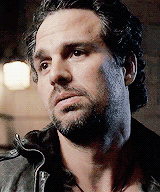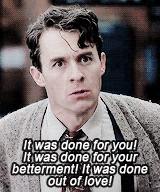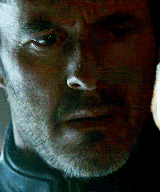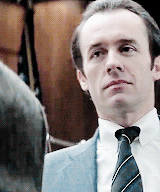![]()
![]()
(
SPOILERS!)
On the day of their fifth wedding anniversary Nick Dunne (Ben Affleck) comes home to find opened front door, shattered glass table and his wife Amy (Rosamund Pike) missing. Once Nick notifies the police the investigation and media circus begins and people quickly come to conclusion that Nick had something to do with Amy's disappearance. What happened to Amy Dunne?
When I read that
David Fincher is working on the new movie along with the quick snippet about the book story I figured I need to read it. I devoured Gone Girl in 3 days and immediately read
Flynn's other two novels.
Flynn is a brilliant writer who creates amazing characters - everyone is so memorable, complex, interesting, worthy of their own story. But the most complex of them all is Amy.
The story of
Gone Girl develops slowly, patiently - as we see the progress in investigation we also travel back via Amy's diaries - each sequence beginning with the change of track and the shot of Amy writing her diary, one of the many ingenious little touches
Fincher used here. Her diaries show how she met Nick, how they fell in love - kind of - and how the marriage slowly began to collapse.
![]()
The answer to the key mystery - where is Amy, who took her, is she alive? arrives around one hour mark. It's fast for the film to reveal its main plot twist so early but here it is necessary - Amy is the main attraction and once we get to know the real her, the actual fun begins. Without the actress who could embody Amy this whole movie would collapse entirely - had Reese Witherspoon played that part we would be looking at Razzie nomination worthy work. The vanity of that woman! How could she read the book and actually think she could play Amy?
Thankfully the studio told her to fuck off and
Fincher chose gorgeous and talented
Rosamund Pike. I have not seen anyone embody a literary character so profoundly since
Christian Bale in American Psycho. Except Pike does something even more impressive here - the way she looks changes. And it's not the simple lose/gain weight thing either. She can look angelic in one frame and in another? She is Devil incarnate.
![]()
At first the audience is led to believe that Amy is a pretty, well educated girl who meets a boy and that's all there is to her. Well, other than years of psychological damage that were done to her by her parents - the authors of Amazing Amy books, which were about the perfect girl, based on Amy but improving her in many ways in print. The actual Amy sometimes disappointed her parents - by things as trivial as giving up on playing tennis - and they would write Amazing Amy to excel in those things their actual daughter didn't master.
This is only addressed in the few lines Amy shares with Nick during the book launch party. But throughout the movie Fincher slyly brings Amazing Amy back - the website dedicated to Amy has "Amazing" in its name, her mother mentions the literary character over and over again. While it's not the kind of thing that would make the non book readers think 'I bet this messed her up!' it's there and once you discover the real Amy, it's easy to understand why she became the person she is today.
![]()
In what may be
Fincher's most spellbinding scene the frame up montage/cool girl monologue from the novel is shown. It begins with the breathtaking image of Amy, wind in her hair, snapping the pens and throwing them out of the window. We see Amy faking her diary, spilling her own blood, buying incriminating stuff, doing things to make it look like Nick killed her. The levels of Amy's brilliance, and the whole cool girl tirade ring, combined with
Reznor's and Ross' excellent music playing in the background, as truly triumphant. It was my favorite moment in the book and it was so much fun seeing it become the movie's best moment.
Amy becomes the girl on the run, hiding, assuming new identity, letting herself go. It's shocking how different
Pike looked in those scenes - it looks like all the weight she gained went to her face. The transition is especially powerful when the movie goes into the third act - when we see her in a nightie, new hair cut, slim body in Desi's house. It's s powerful metamorphosis, both in the way she looks and the way she acts.
![]()
I think had
Hitchcock seen this movie he would have proposed to
Pike on the spot - while she is excellent throughout she is downright horrifying and fascinating in the film's third act, which is by the way, uniquely - the film's strongest part.
Pike looks gorgeous, that's one thing, but another is her calculated ruthlessness. The added scenes - of her manipulating events for the surveillance footage and the sequence of her killing Desi (something we just hear about in the book) in what must be the most realistically and sick looking murder scene in quite some time - the way she turns him over and almost sucks the life force out of him in pool of crimson, this petite woman, this delicate blonde annihilating this man, bathing in his blood - paint Amy as the scariest and most memorable villain in quite some time.
It's also fascinating because one of the many unique things this movie does is not being afraid to show that Amy is not always victorious - she gets robbed by ordinary trailer trash, but when she has the opportunity to plan and deceive while she is not vulnerable and she never let's her guard down - there is no one who can defeat her.
![]()
The third act is also where
Pike's strongest scene lies - the hospital scene is a masterclass of acting with Amy almost laughing poor Rhonda in the face. At that point of the movie Amy is finally free and fulfilling a life long mission to be the Amazing Amy herself - perfect story, perfect husband, perfect life.
The freaking miracle on Missouri. The movie has way more of satire on media than the book did and those shots of Amy being all Princess Di are really quite scary. The film expands on book ideas - now it's not just "that perfect housewife" - in reality a monster - but "American heroine" being one. Amy commits cold blooded murder and she is a heroine because almost nobody knows - she signs autographs for little girls and nobody knows the truth.
![]()
I saw a lot of complaints how there is something off about Amy from the start - alerting the audience - because of
Pike's line delivery. I don't agree at all - she even looks angelic in certain scenes, like the scene where she tells Nick how her parents need money. And
Pike needs a single word to break your heart - the way she says a baby would be 'an inspiration' is so sweet, innocent and powerful. Then she becomes a woman scorned but it's impossible not to feel for her when sees Nick with Andie. And then she becomes...well, if there was a plot twist Flynn used and told us this is the Devil, because the Devil was bored and wanted to play at being a suburban housewife? I'd buy it. I always thought the Devil, if real, was a woman. Men are not that cunning.
I may be wrong, but I believe this is
Pike's first lead role. For years she played good roles in independent movies not many saw, or acclaimed movies where other people got accolades even though she was consistently excellent. She also played a suppporting pretty blonde character a bunch of times in big budget films with male superstars. As Amy
Pike finally got her chance to shine.
![]()
It's very clear that
Pike put a lot of effort to understand Amy and to honor
Flynn's book. She read the books
Flynn recommended - from
American Psycho to Flynn's own
Sharp Objects - to get into right mindset for the movie. She trained kickboxing to look athletic in the film's final act. She gained and lost weight. And she even consulted experts to come up with new handwriting style, one that would suit Amy's personality.
Pike's work here is nothing short of amazing - Amy is a complex, misunderstood and often hated character. But it's also a very rare character where a gorgeous protagonist girl is one at the same with vicious evil antagonist. It's so rare to see this and I commend everyone involved for following Flynn's vision and not making the movie more audience friendly.
![]()
When I read the book I hated Nick Dunne. Not just because he was weak - I hate weak characters, but because he was boring. Say what you want about Amy - she is not boring. Nick had some good observations in the book but we also read a lot about the way he treated Amy - by his own admission he ignored her and he didn't try to connect with her - and we read a lot about his affair that lasted a year.
I was incredibly surprised that thanks to some tweaks in the movie - Nick's affair is given very little screen time, simple things like showing him care for the cat, the general weariness of the character - and
Ben Affleck's portrayal I actually found Nick sympathetic.
Affleck is really excellent even in simple things - the way he shouts 'Amy!' once he notices she is gone reveals a certain degree of being worried, the way he is actually amused when saying 'Amy brings the best of me' shows he is in on exactly how fucked up their relationship is.
![]() Affleck
Affleck is good both when he shows his character's temper - 'because she told me to!' - and in lighter moments like when Ellen Abbot insinuated twincest between him and Margo. It's definitely
Affleck's best work, granted a lot of it comes from the fact he is well cast here, but he showed a lot of talent in the movie, and Nick Dunne is not an easy character to play.
(Almost) entire cast is superb as well -
Carrie Coon delivered wonderful work as the most honest person in the movie as Nick's sister Margo.
Coon's final scene in the film, despite the movie being in full blown satire mode by then, is the movie's most heartbreaking moment.
Kim Dickens is also fantastic as another honest and decent woman - detective Rhonda Boney - who approaches Nick both with suspicion and benefit of the doubt.
Then there's
Tyler Perry who is absolutely hilarious as Nick's lawyer Tanner Bolt and
Patrick Fugit who adds humour to the movie as Boney's partner.
Neil Patrick Harris does quite a bit with a character who was very creepy in the book but in the movie he comes off as sympathetic, clueless bastard.
Lisa Banes is superbly cast as Amy's cold, controlling mother - you can see this woman contributed to making Amy the way she is now. I thought the only weak link was
Emily Ratajkowski who was out of her depth here. I'm not sure she was well cast -
Fincher and
Affleck kinda showed a disappointing approach here by focusing on the line describing Andie as an 'alien sex doll'. So they thought with their dicks and they cast Emily because she has a sexy figure. But that was not primary reason why Nick cheated specifically with her. Amy was difficult and Andie was sweet, naive and it was easy to talk to her. I did not get sweet from her nor did I get any of this from the movie. All I got was dumb. Which in the process made Nick even dumber for cheating on his wife with Andie. Had he found someone who we were shown to be sweet it would be at least some justification, but Andie talks like a whore and the other times we see her don't help to build any sort of character.
One of the many things I adore about
Fincher is that the man respects his audience. He doesn't zoom in on the things you are supposed to notice - he shoots them wide like the moment Nick hides clue three in his pocket. He assumes you are observant and you don't need hand holding through hard scenes nor pointing to notice important things. While other directors would do flashbacks to something that happened 30 minutes ago in the movie,
Fincher doesn't do that. And seeing the reactions to this movie? I think the man has far too much respect than the modern audience deserves.
![]()
The amount of issues people have with what is essentially a satire and fairly straightforward story is saddening - how did she get pregnant? Is this Desi's child? Why did Nick stay with her? How did she not go to prison? Why did the hospital leave blood on her? What about the surveillance cameras? Why did the movie end the way they did? Why didn't the police look into Amy's story? - I'm not sure whether people are too frightened by where the story went and want to brush it off as 'plot holes everywhere' or they left for bathroom 10 times during the movie, but these are not plot holes. It's all there.
Granted, I read the book before seeing the film and while some things are mentioned ten times in the book and only once in the movie, they are still there. There is nothing superfluous in Gone Girl - if a person says something or if a certain scene is included it's because it is important. While some things are easy to miss - such as leaving the blood on Amy so she would wash it away with Nick, symbolizing her baring it all, her true self, no bullshit only with him - other things like the sperm bank are indicated before in the movie with the entire conversation Nick and Margo have. Not only do people not connect the dots, they dare to accuse the script of plot holes. What did they want? A montage titled "The Magnificent adventures of Nick's sperm" beginning with Affleck jizzing in a cup? Also there are four separate scenes indicating that Amy tempered with cameras in Desi's place. Yet just because people didn't see another montage of Amy doing that, they scream plot hole. Mr.
Fincher, this audience doesn't deserve you.
![]()
Another thing I love about Fincher is his unique style, achieved with his insistence on shooting a scene sometimes up to 50 takes. But it pays off - there are many flawlessly composed shots here, stellar, memorable images, such as the fantasy sequence of Amy's body floating in water, the crumpled
find Amy leaflet on the street or very unique, weirdly unsettling opening credits.
There is also a great deal of symmetry here, more so than in any other
Fincher's movie - while some things are straight from the book like the duality of sugar storm showing the beginning and end of
love for Nick and Amy, many are movie additions - the brilliant sequences showing Amy locking herself up, mirrored by Nick doing the same later on or a ingenious scene of Nick opening the door and seeing no one outside and the same happening to Amy several scenes later - it's a trick that shows something similar happening to these two characters, a small little piece that adds - if only a bit - to the notion of them being right for each other.
![]()
The most obvious symmetry comes from the opening and ending of the movie and it's yet another showcase of
Pike's ability - in the beginning she looks sweet, innocent, harmless. In the end? She's a goddamn predator. She actually looks frightening.
Fincher also does something new which is adding a pulsing, slow fade to black technique to the movie's most shocking and violent moments. People actually gasped when Nick pushed Amy and she hit her head on the stairs. And during the climactic murder? Everyone turned pale. These are incredibly intense scenes to begin with but the way Fincher handled them, which remained very realistic, in spite of this stylistic choice, only added more impact to them.
![]()
Then there is tremendous score by
Trent Reznor and Atticus Ross. I really liked their work in The Social Network and especially in The Girl with the Dragon Tattoo, but I think their contribution to Gone Girl is their best one yet. From creepy intense tracks like Under Suspicion and haunting Consummation to soft, Badalamenti style mysterious tunes like Appearances, Just Like Us and Like Home the score adds so much to the film. The fact that the lovely Sugar Storm is reprised in one of the movie's most memorable moments is ingenious.
Gone Girl does something not many movies manage to do - it successfully blends thriller genre with satire. The film goes into satire territory completely in its third act and that is where the true star of the film shines the brightest -
Pike is the only one who shifts her performance into satirical, no fear of coming off absurd ("Shampoo?"), being our guide through the last act. Nick, at that point, is just a cocoon caught in the web.
![]()
While the film could use some ideas from novel better - like the presence of Nick's father who only has one scene in the movie, or the desire to be perfect both Nick and Amy share,
Flynn did a wonderful job adapting her own book. The film is as good of an adaptation as they could possibly make - staying true to the characters, events and the general spirit of the source novel.
I did write about misogyny claims
here so I'm not gonna repeat myself here. The thing about Gone Girl and its importance is that its a high profile big movie where something unusual happens - a female character that would be killed off or sent to mental institution in a convenient plot resolution in any other movie, triumphs here. She doesn't go full blown insane, makes a stupid mistake and gets caught, as would be the case in dozens of different films. She is at the top. She is impossible to run away from. It's unique, unsettling and fresh. It's something new. How often do you get to say that about a movie?
![]()
There have been many insightful; and painfully realistic movies about marriage - sometimes impossibly depressing ("Blue Valentine"), sometimes just depressing ("Revolutionary Road"), provocative ("Eyes Wide Shut") and hilarious ("The War of the Roses").
Gone Girl combines all of those traits, working half an almost mythological cautionary tale - think of Amy as a siren, luring a man to his doom with the promise of everything he ever wanted, half a biting, entertaining satire with a dark twist - the question in the back of your mind, how well do you know the one you're with?
While the film does have some small flaws - the casting of Ratajkowski, not digging into Amy's personality enough and underutilizing some of the book's fine ideas - it is my second favorite Fincher movie after
Se7en. While it's not as great and easy of a viewing as Se7en - while brutal, Se7en has shorter runtime and more packed storyline and is more fun than this, which is a dark picture of a love and marriage, things that are supposed to bring you happiness - I hope Gone Girl will prove at least half as influential as Se7en.
![]()
Perhaps the most admirable thing about the film is that it works on so many different levels. A commentary on the media and the public passing the sentence before any evidence was presented - blinded with the
righteous indignation that will make them feel like they are good, decent people (the recent situation of people calling for crowds to grab torches - literally - and going to Woody Allen's house after Dylan Farrow wrote her letter comes to mind), a painful look at two people growing apart in marriage, a mystery thriller about disappearance (I wonder what people who didn't read the book thought happened to Amy) and finally a horror movie about modern relationship.
The film also shows how such evil as Amy - which is made scarier by being a product of things you yourself experience like disappointing others, wanting to be admired, getting tired of waiting for something to happen and making it happen - lurks in the most ordinary place, quiet suburban home. She makes crepes for breakfast, she feeds the cat. She smiles at the children, she goes shopping, she waves to her neighbors. And she can cut your throat or make your life hell if you give her one displeasing look.
![]()
![]()
![]()
Like other Fincher movies Gone Girl deals with a theme that so many of us can relate to - religion (Se7en), ambition (The Social Network), anger (Fight Club), fear (Zodiac) - now it's love. You can choose to think that there really is no love here - just lies, pretending and hellish entrapment. Or you can choose to believe that Nick and Amy are so uniquely messed up that they become the modern kind of soul mates - all their issues, all their bad experiences, all the things that made them cold, insecure and fucked up shaped them into these two specific people who understand each other and who see each other better than anyone in the world sees them.
There's something oddly romantic about that.
![]() RELATED POSTS:
RELATED POSTS: ![]()
![]()
![]()
![]()












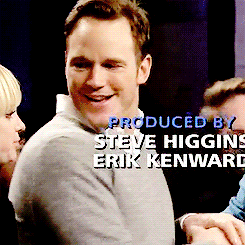


 RELATED POSTS:
RELATED POSTS:



